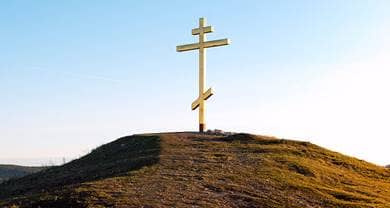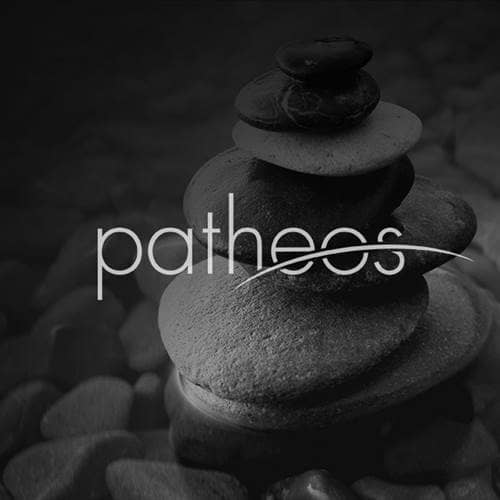- Trending:
- Pope Leo Xiv
- |
- Israel
- |
- Trump
- |
- Social Justice
- |
- Peace
- |
- Love

RELIGION LIBRARY
Eastern Orthodoxy
Human Nature and the Purpose of Existence
While Eastern Orthodoxy shares with most Christian communities many beliefs about human nature and the purpose of existence, this article discusses certain aspects of Christian belief that are emphasized within the Eastern Orthodox tradition.
Eastern Orthodox Christianity reflects on human nature in light of the story of the creation of humans related in the Book of Genesis. Genesis 1:26 reads in part, "Then God said, 'Let us make man in our image, in our likeness.'" Eastern Orthodoxy perceives a difference between the image of God and the likeness of God. We are born in the image of God, and the goal of the Christian life is to seek the likeness of God.
To be made in the image of God means to possess rationality and freedom, and a sense of moral responsibility. These unique features distinguish humans from the rest of creation. From the first moment of our existence, we are endowed by God with these powers. Sin cannot destroy God's image in us.
We are also God's offspring, following Acts 17:28, where Paul is reported to have told the Athenians, "'For in him we live and move and have our being.' As some of your own poets have said, 'We are his offspring.'" To be the offspring of God is to be similar to God. This means that we can know God, and commune with God. Following Luke 17:21, we can find God in our own hearts. In terms very special to Orthodox Christians, to say that we are created in the image of God is to say that each person is an icon of God, body and soul. Therefore every life is infinitely precious in God's eyes. God is present in each person, and the divine presence defines the human being as a "living theology."
Sin cannot destroy God's image, but the likeness of God in us depends on our moral choice, our virtue. Our virtue can be corrupted by sin, and God doesn't sin, so unlike the image of God in us, the likeness of God in us can be corrupted. The likeness of God is the goal at which the Christian aims. We are capable of communion with God, and if we seek communion with the Holy Trinity, we can become "like" God, or deified. The aim of the Christian's existence, in Eastern Orthodox tradition, is to seek communion with God. The restoration of the likeness of God is called theosis, divinization, or deification.
Just as in western Christian traditions, the Orthodox tradition teaches that we cannot find communion with God through our own striving. We depend on God's grace. Orthodoxy uses the term "synergy" to describe the relationship between God's grace and human freedom, following Paul's first letter to the Corinthians: "For we are God's fellow workers (Greek, synergoi); you are God's field, God's building" (1 Cor. 3:9). The work of salvation is a joint effort, but God's part is infinitely more important.
Study Questions:
1. How are God’s image and God’s likeness different?
2. What is the role of sin in understanding the difference between God’s image and God’s likeness? How can humans escape sin?
3. What is deification?










